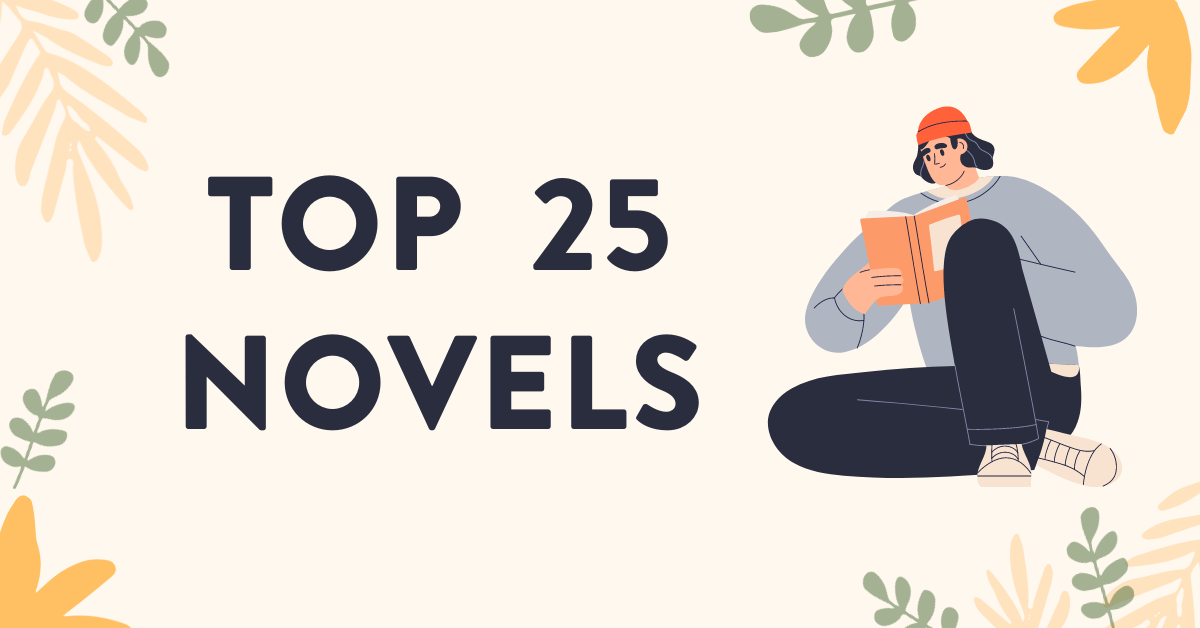
Every member of my book club has decided to list our top 25 novels of all time, and in the spirit of that disclosure, I decided to make mine public here at Bookfox.
A list of the most important books is like a horoscope reading of your soul. Give me someone’s list, and I’ll tell you what they love, what they value, what they champion. That said, don’t read too much into this list! My soul is not quite as corrupt as some of these books would suggest.
Almost twenty years ago I made a list of my top 50 books — there was a trend going around the literary bloggers — and I would link to it but it’s been forever lost in the cosmos of the internet. However, I posted a copy of it beneath this newer list, and there’s a decent amount of overlap.
I should say that these do not appear in any particular order. #25 didn’t squeak in, and #1 is not my all-time favorite. It’s hard enough to narrow the entire field of books down to 25 selections, much less order those from top to bottom, like some kind of cage-match ranking.
This also isn’t a list of the “Greatest Novels,” whatever that means. This is merely a personal selection of my favorite books.
There were three ways I limited the books I was choosing from:
- It’s only fiction. There’s no nonfiction on this list, or else Pilgrim at Tinker Creek by Annie Dillard would be here. There’s also no poetry (sorry, Mary Oliver). I squeaked in one collection of short fiction, and one novella, but all other 23 are proper novels.
- There’s no repeated authors. No matter how much I loved two books by the same author, I didn’t want to give anyone the privilege of appearing twice.
- I tried to focus on modern novels. I did include a handful of older titles at the end, simply because leaving them off would physically pain me. But 80% of these books were written in the past 30 or 40 years.
How did I decide on my top 25 books? Well, when I thought about it, I used three criteria:
- Stickiness. You can’t elevate a book right after reading it, or even 6 months after reading it. It has to linger for years and years in your brain. Durability is one of the key factors of greatness.
- Re-reading. I don’t re-read a lot of books. So if a novel truly has captured my imagination, that’s the only time I ever would reread. A good number of the books below I’ve gone back to.
- Weight. There are plenty of fun-to-read books that don’t deserve to be on an all-time favorite list. For me, my favorites need to make me wrestle with the most fundamental aspects of being alive, and they need to haunt me with provocative questions.
Hope you enjoy this list!
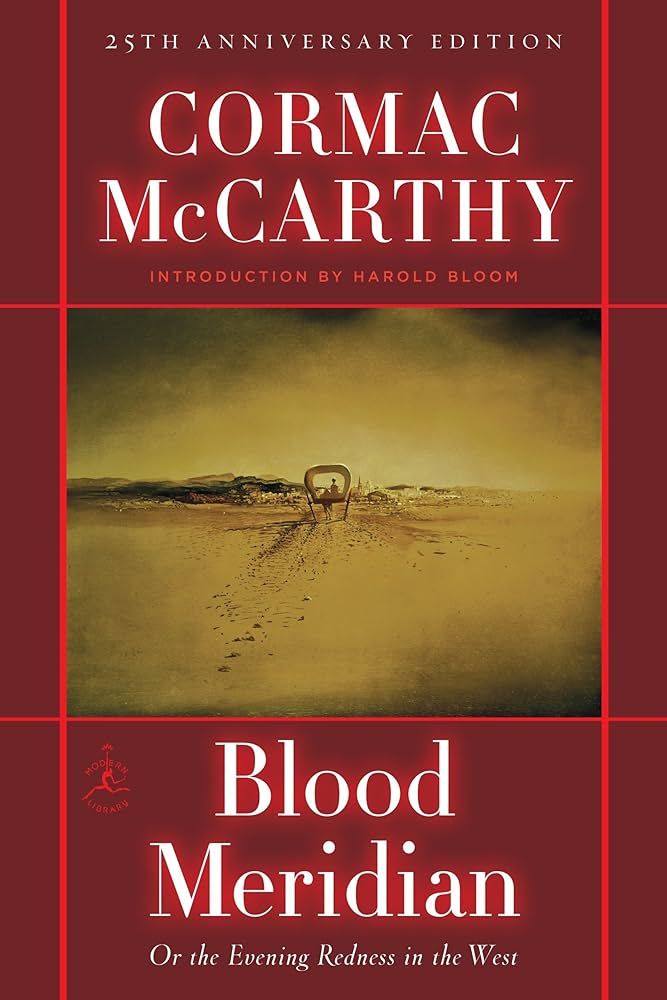
1. Blood Meridian, Cormac McCarthy
Reading Blood Meridian is a kind of test. If you keep reading, you fail the test, because you must be a horrible human being to persevere in the face of genocide and babies hanging on trees.
But what keeps me coming back to this book is the Shakespearean-level language, and the rewriting of the myth of the American founding, and the grappling with the heart of evil.
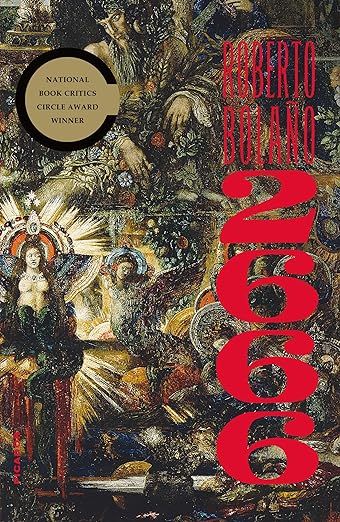
2. 2666, Robert Bolano
I am aware this is a polarizing choice. Half the people I meet think this is a dreadful book they could not finish, while the other half gush about its praises.
But I’m swept up by the search for the reclusive author Archimboldi, and captivated by the love triangles and the plight of the femicide victims in Mexico.
It’s also a better book than the much lauded “The Savage Dectectives,” in my opinion.
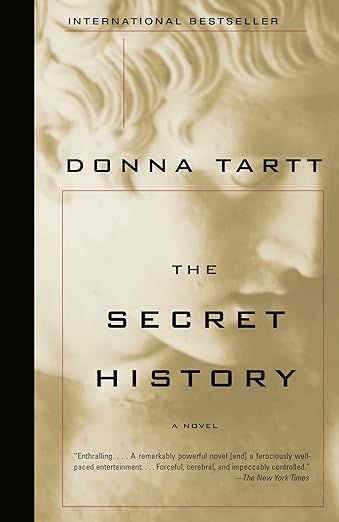
3. The Secret History, Donna Tartt
This is a 600 page book and I read it in a single sitting. I received it at 3:00 p.m. and I didn’t stop reading until 11:00 p.m.
Yes, it’s that good.
It’s a misnomer to call this an academic novel. Yes, it takes place at a university, and yes it involves a tight-knit group of young scholars devoted to ancient Greek, but the murder mystery at its core, and the way that the story unravels, transcends genre.
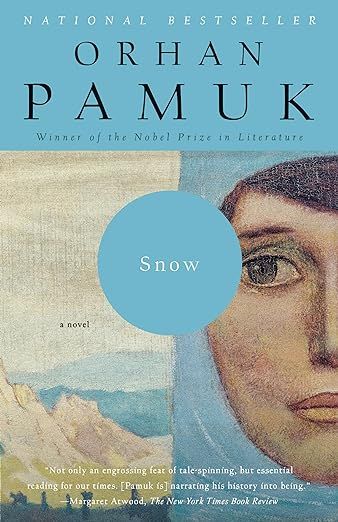
4. Snow, Orhan Pamuk
Orhan Pamuk is a Turkish writer, and this is the story of a wave of suicides among Muslim girls forbidden to wear their headscarves at school.
I love the “enclosed space” of this novel, because the whole town is snowed in and isolated, and how the book wrestles with faith, religion, death, and love.
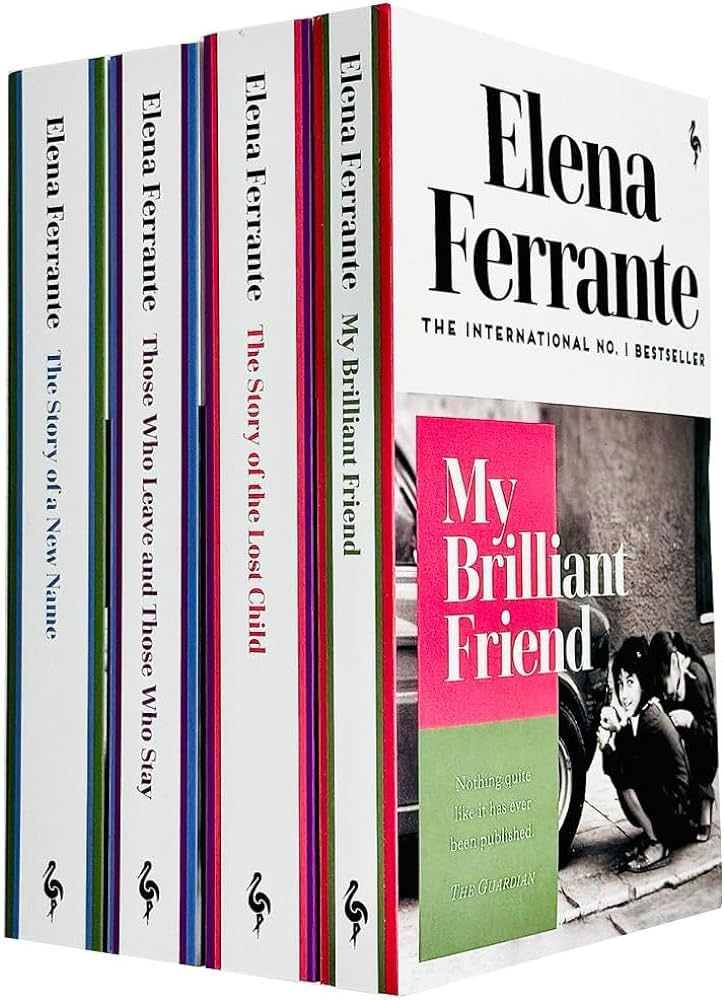
5. Neapolitan Quartet, Elena Ferrante,
I am aware this is cheating, choosing four books and pretending like it’s only one. But to be fair, I read them all in a two-week rush, so to me they felt like a single, unified work. Splitting them into four was more of a marketing decision than an artistic decision.
But let me say that the sheer scope of this Italian series, and the psychological depths of these women, are unparalleled in the world of literature. I love it so much.
I also enjoy her shorter novels, but the sheer imaginative heft of these make them my favorites by far.
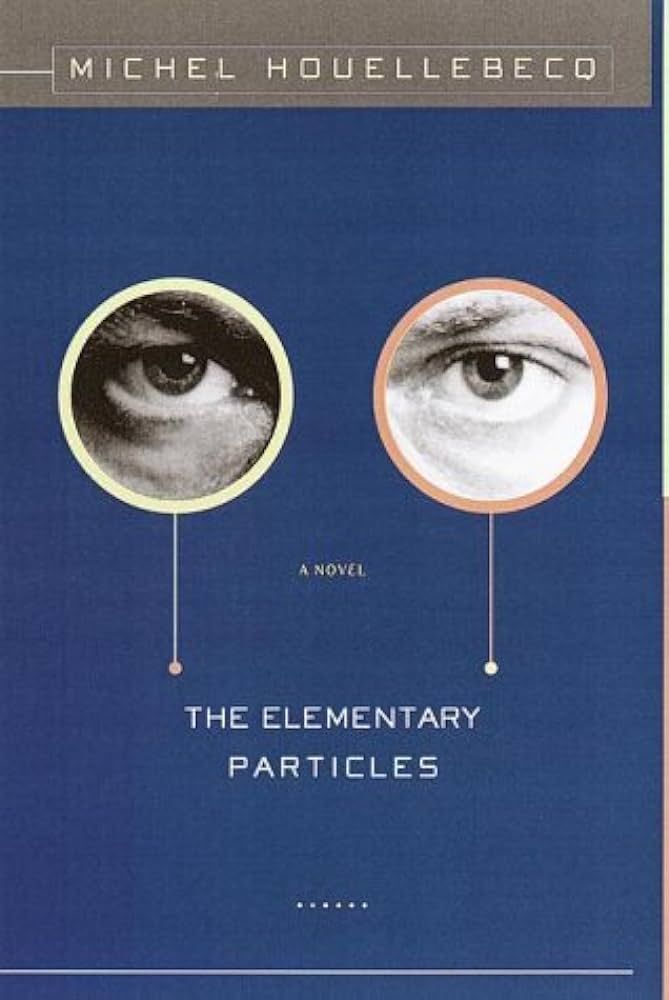
6. Elementary Particles, Michel Houellebecq
I know that Houellebecq is the bad boy of French literature, and I’ll probably get flack for including him on this list, but this really is a fantastic novel.
It’s the story of two half-brothers, one a scientist, and the other a sexually addicted hedonist, and it grapples with the future of humanity itself (you know, light reading).
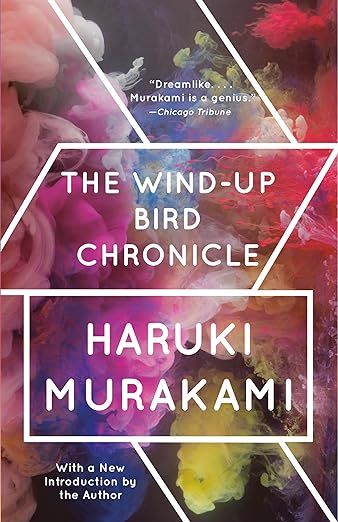
7. The Wind-Up Bird Chronicles, Haruki Murakami
It’s difficult to pick just one Murakami novel, but I think this is his masterpiece.
His last two novels have been rubbish — they feel like pastiches of his former work — but his mid-career novels are wildly imaginative. He puts the magical into the realism.
Ostensibly, this is about a man searching for his cat and for his wife, but the surreal components of the story elevate it to canonical status.
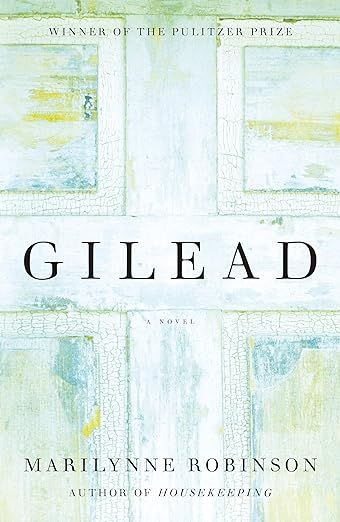
8. Gilead, Marilynne Robinson
Robinson exudes quiet grace. In this tiny, unassuming book, she manages to fit a whole world of family strife and reflection.
It feels more like a meditation than a narrative, but I love stepping into John Ames’ mind and voice, and journeying alongside him.
It’s one of the rare books in literature that make you want to be a better human being.
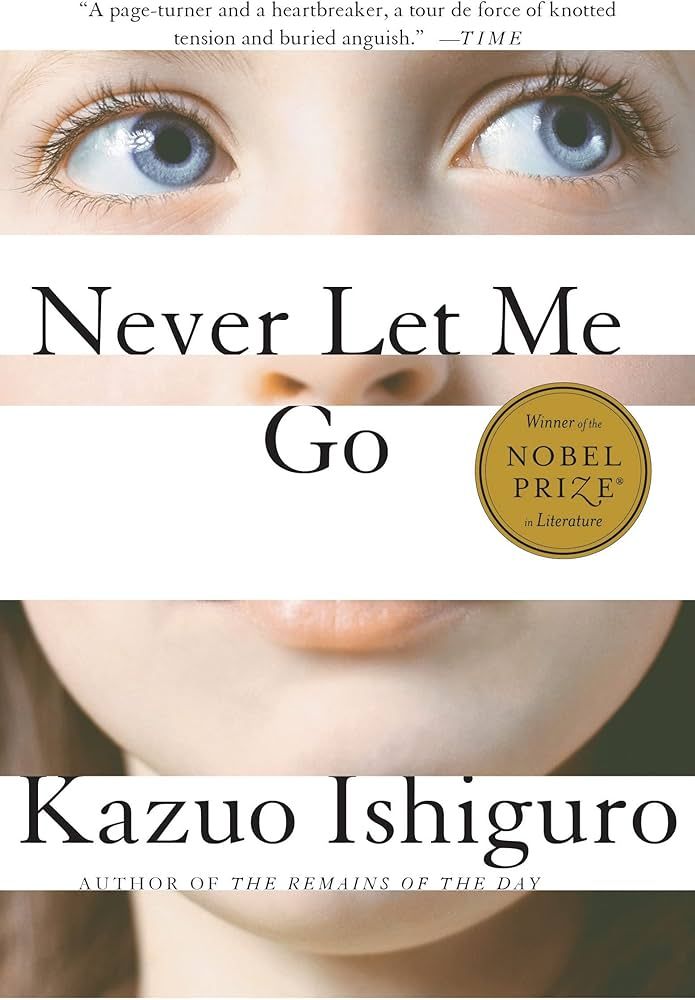
9. Never Let Me Go, Kazuo Ishiguro
I love Kazuo Ishiguro and have read every book of his, and it was a close call between this novel and “The Remains of the Day.” In the end, I’ve thought more about “Never Let Me Go” over the decades, and so it gets the nod.
Ishiguro has the ability to take a genre like fantasy and sci-fi, and literify it — see “Klara and the Sun” and “The Buried Giant.”
For those of us who appreciate the pleasures of genre fiction, but yearn for the literary craft, language, and characterization, he’s the ideal author.
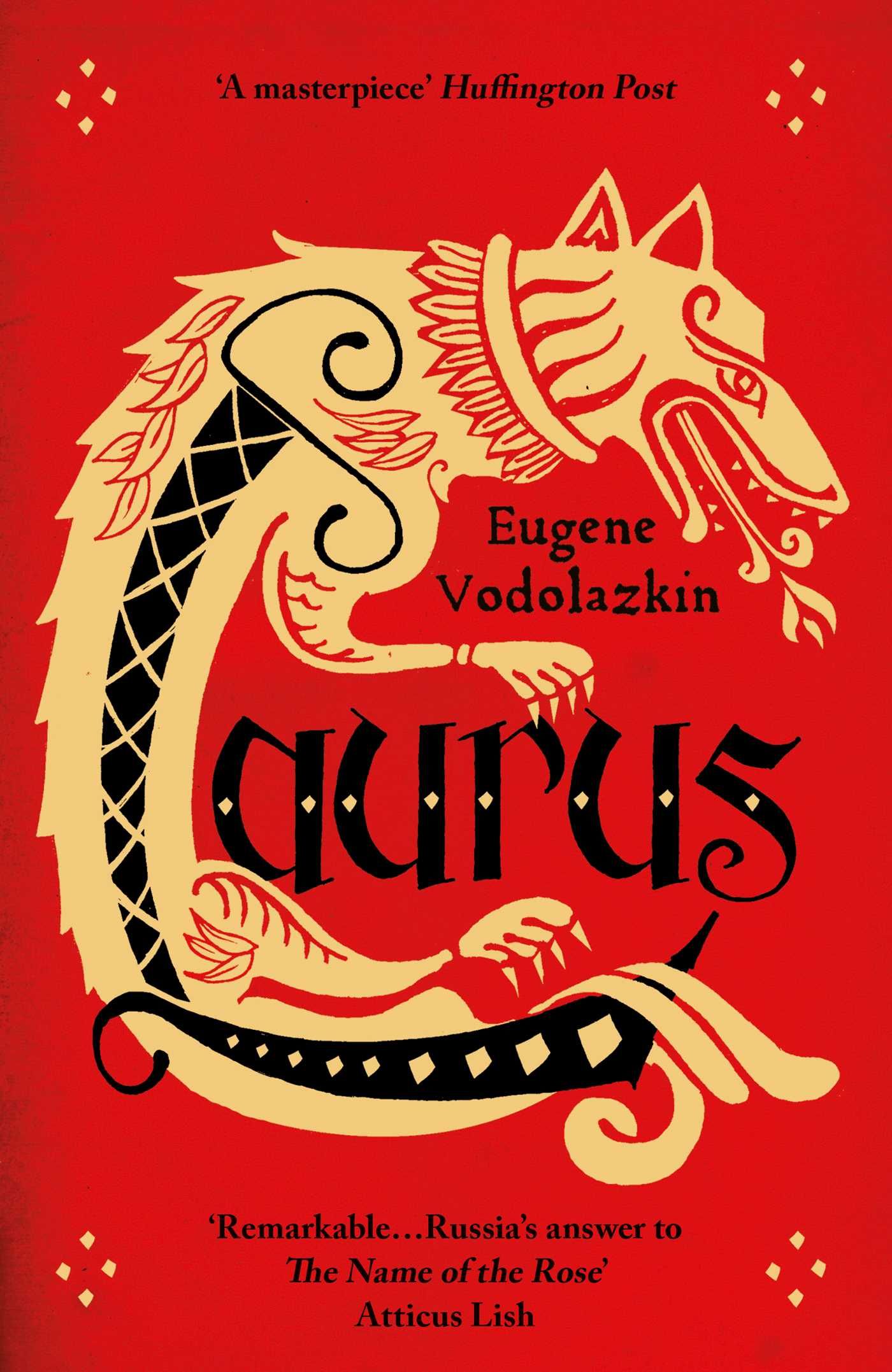
10. Laurus, Eugene Vodolazkin
If you are well read, you’ve at least heard of all the books up to this point, but you might not have heard of this one.
Vodolazkin is a Russian writer who penned this marvelous, surreal novel about a 14th century monk losing his wife during childbirth.
It explores plagues and poverty, healing and miracles, and it takes at least two readings to get a grip on it.
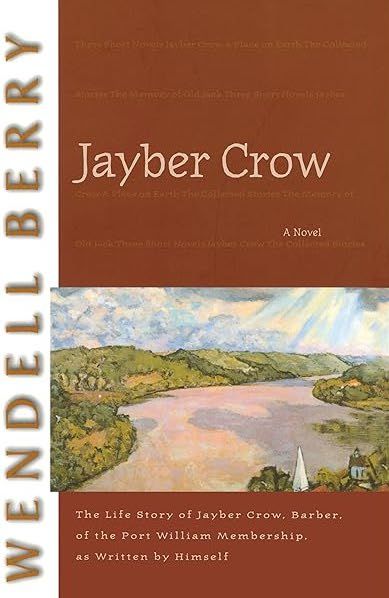
11. Jayber Crow, Wendell Berry
If I hadn’t limited this list to novels, I might have chosen Berry’s collected essays (or perhaps some of his poetry).
Even so, he’s written a number of novels that deserve your attention — “Hannah Coulter” and “The Ballad of Old Jack” among them.
It’s a story of unrequited love, and presents a philosophy of how to live well within the confines of small-town America.
With every book of his I read, I feel a little wiser.
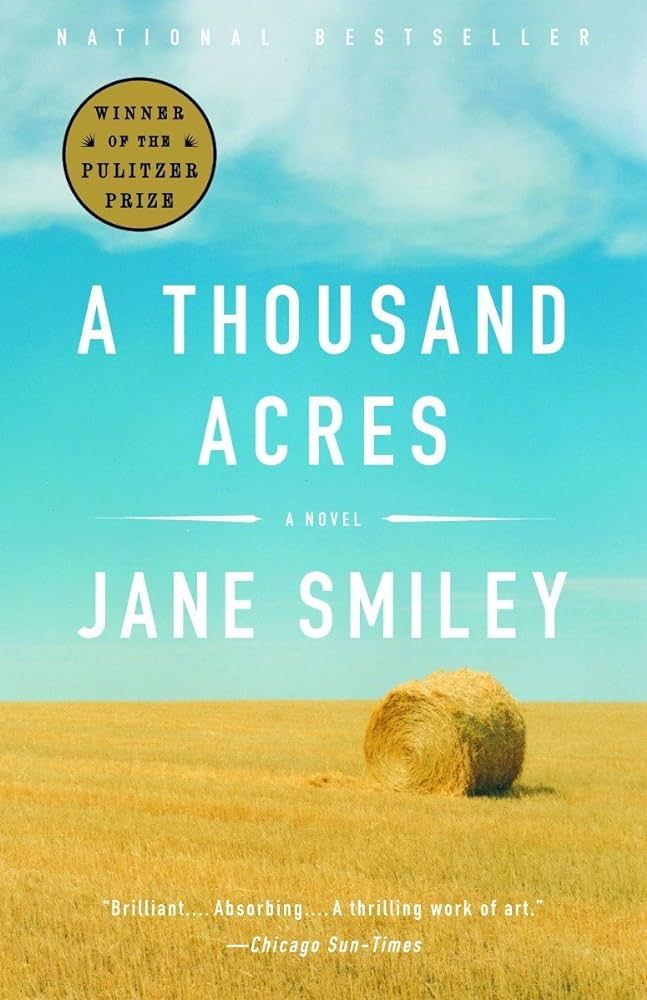
12. A Thousand Acres, Jane Smiley
This Iowan re-imagining of King Lear features the implosion of a farm family.
It’s a story of a domineering father, a love interest who comes back to town, and the turmoil between siblings.
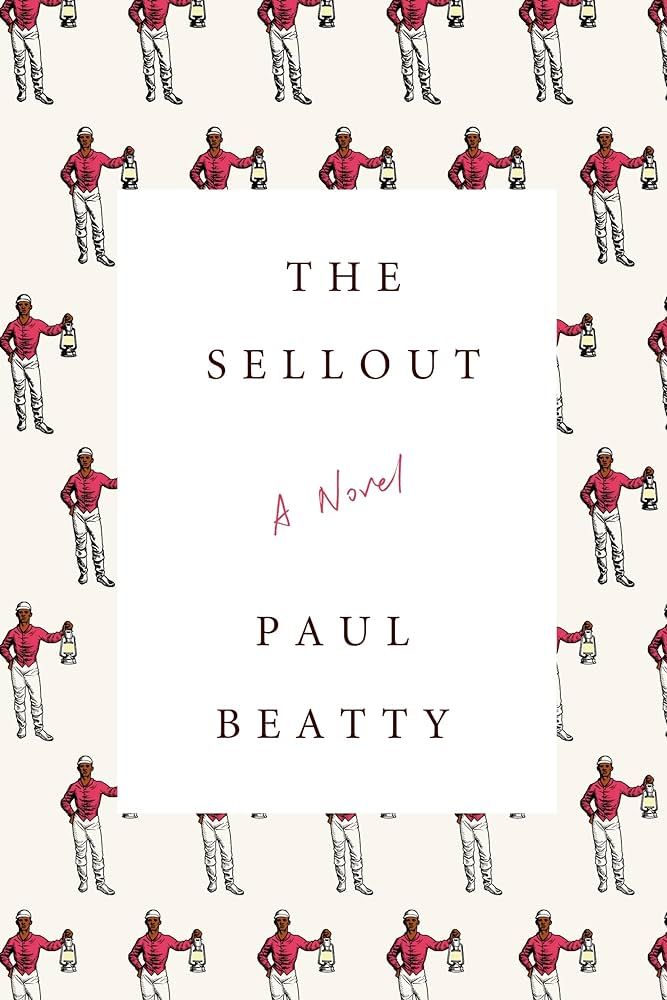
13. The Sellout, Paul Beatty
When you read that first paragraph and swear out loud, thinking: what have I gotten myself into?
But then you buckle up and settle down for one of the funniest, wittiest satires ever written about race in America.
You won’t regret reading this story of a black man in Los Angeles who attempts to reintroduce slavery and segregation.
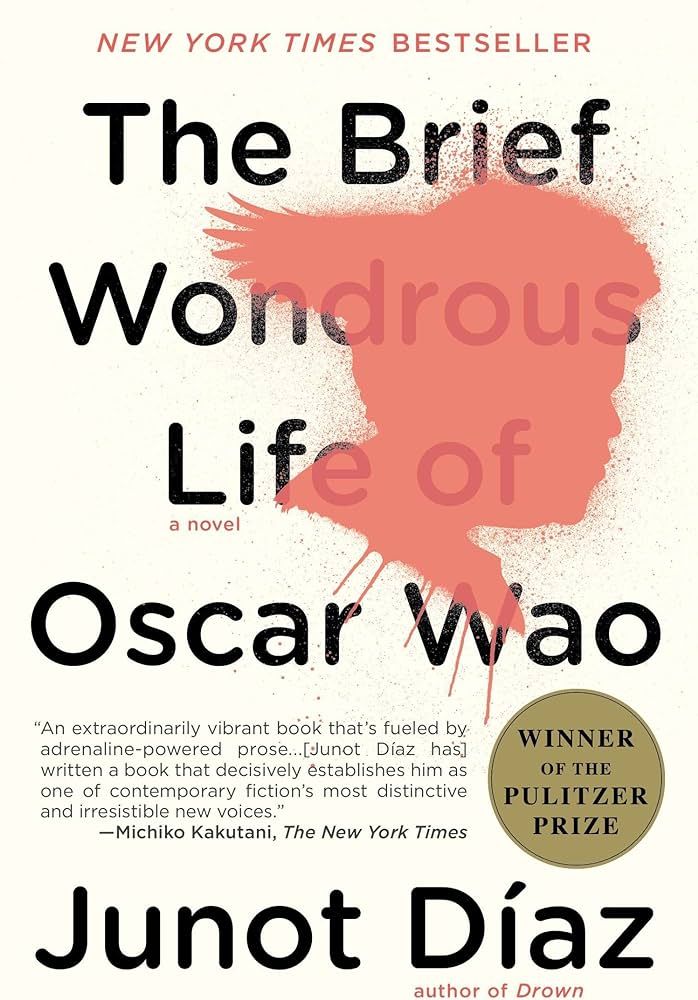
14. Brief and Wondrous Life of Oscar Wao, Junot Díaz
Oscar is so nerdy and dorky, and the fact that he can’t get laid is both funny and sad. This is a book that champions obscure references in acrobatic prose.
Longstanding curses, Caribbean dictators, and beautiful Dominican women — there’s a lot to entertain here.
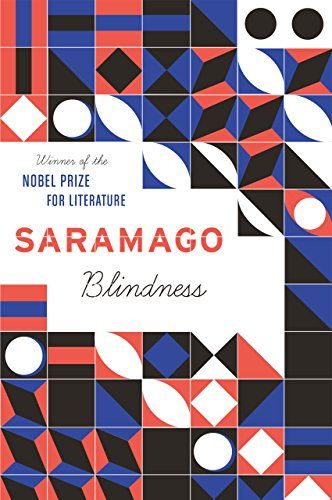
15. Blindness, Jose Saramago
What if the entire world went blind? That is the premise of this book, and the “what if” concept takes place inside a prison where the blind have been corralled.
Part fable, part political allegory, but all legendary storytelling, Saramago explores the way people within communities oppress others and jockey for power.
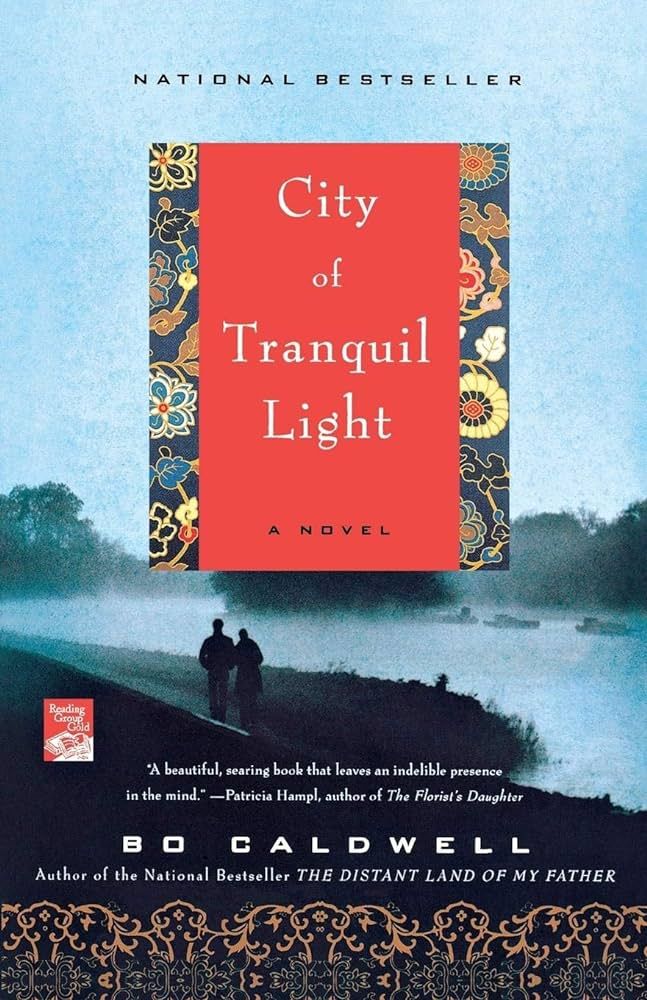
16. City of Tranquil Light, Bo Caldwell
I picked this one mostly for personal reasons, but what all-time list isn’t based on personal reasons?
Four generations of my family were missionaries in China, and when I read this book, I see them, I weep with them, I rejoice with them.
It’s a tender story of a marriage steeped in kindness, and lacking any kind of agenda or dogma.
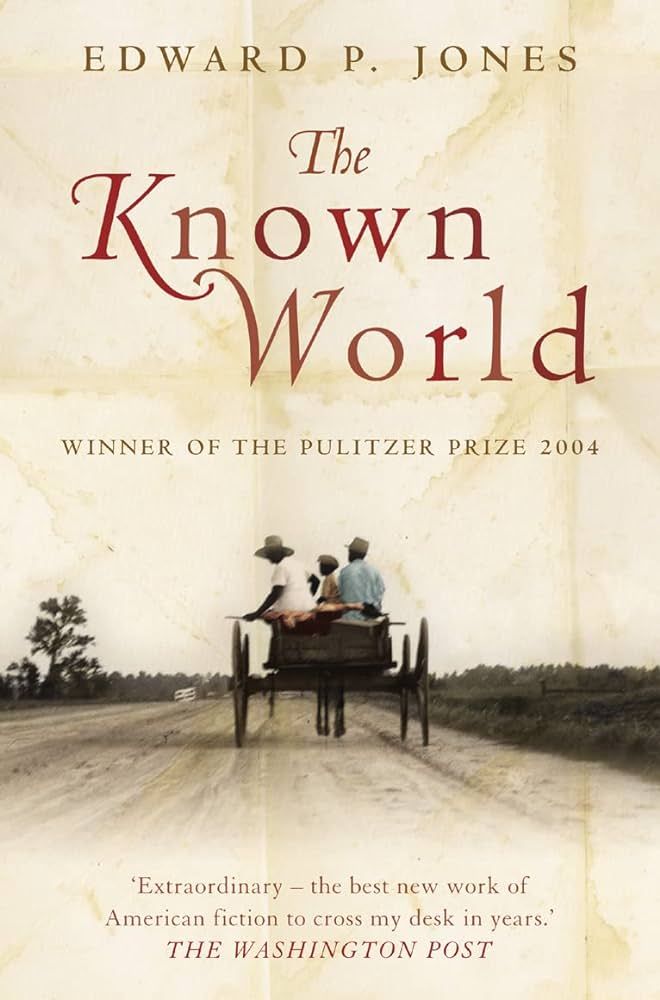
17. The Known World, Edward P. Jones
I’ve read a good amount of novels about slavery, and the danger is that they start to resemble each other. “The Underground Railroad” by Colson Whitehead, for example, trades on so many familiar tropes that I felt I’d read it before.
Jones, on the other hand, removes the governor from his imagination and goes full throttle on a wholly original story.
BTW: the first chapter of this book is one of the best I’ve ever read.

18. Wizard of the Crow, Ngugi wa Thiong’o
What I like about this novel is that it upends so many of the traditional narrative sequences of Western storytelling. Thiong’o is drawing from oral techniques and African traditions to craft a story that is impossible to predict.
It’s also a madcap and hilarious book.
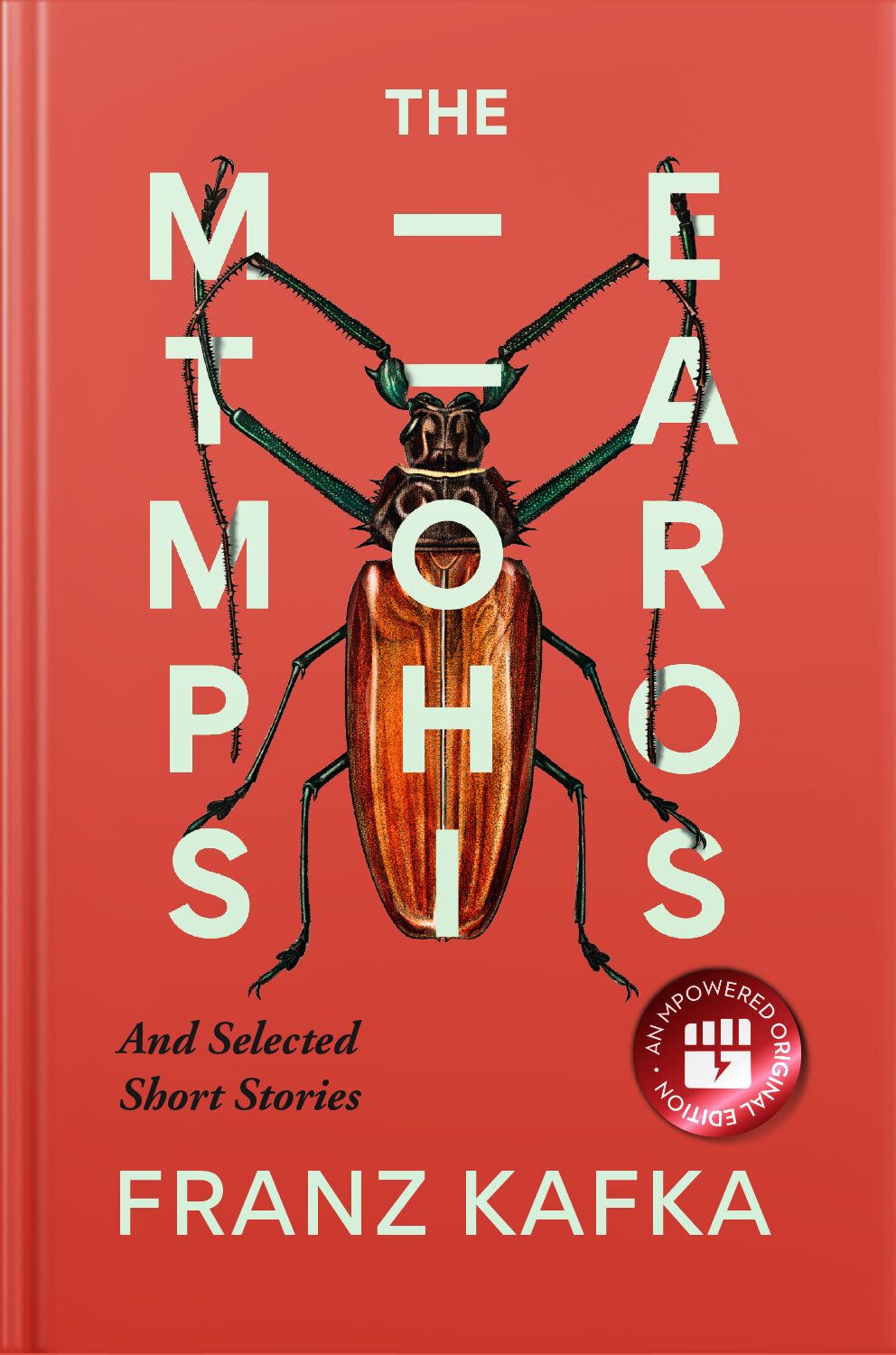
19. Metamorphosis, Kafka
When I taught in a Great Books program, this was the one book I wished I could add to the curriculum.
Kafka is one of the greatest giants of literature, his shadow sprawling over every book after him. There’s a reason we say Kafkaesque — not every writer gets their name made into an adjective.
I also love the theme of metamorphosis in literature. From Ovid’s to Lewis Carroll to H.G. Wells, change is at the heart of storytelling.
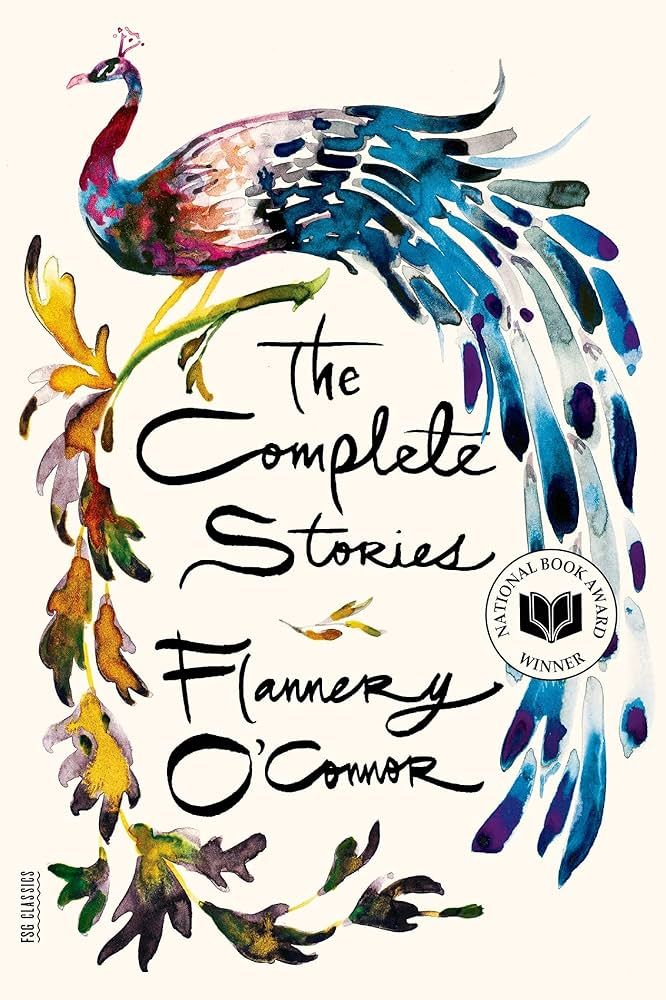
20. Collected Stories, Flannery O’Connor
A colleague in creative writing at a university said that Flannery O’Connor wasn’t great because she didn’t write about love.
It’s true. She doesn’t. But you should never apply quotas or checklists to great works of literature — just examine what’s inside, and accept what’s present.
Flannery O’Connor remains a hardbitten, no-nonsense writer of small-town Southern life, and I love her for it.
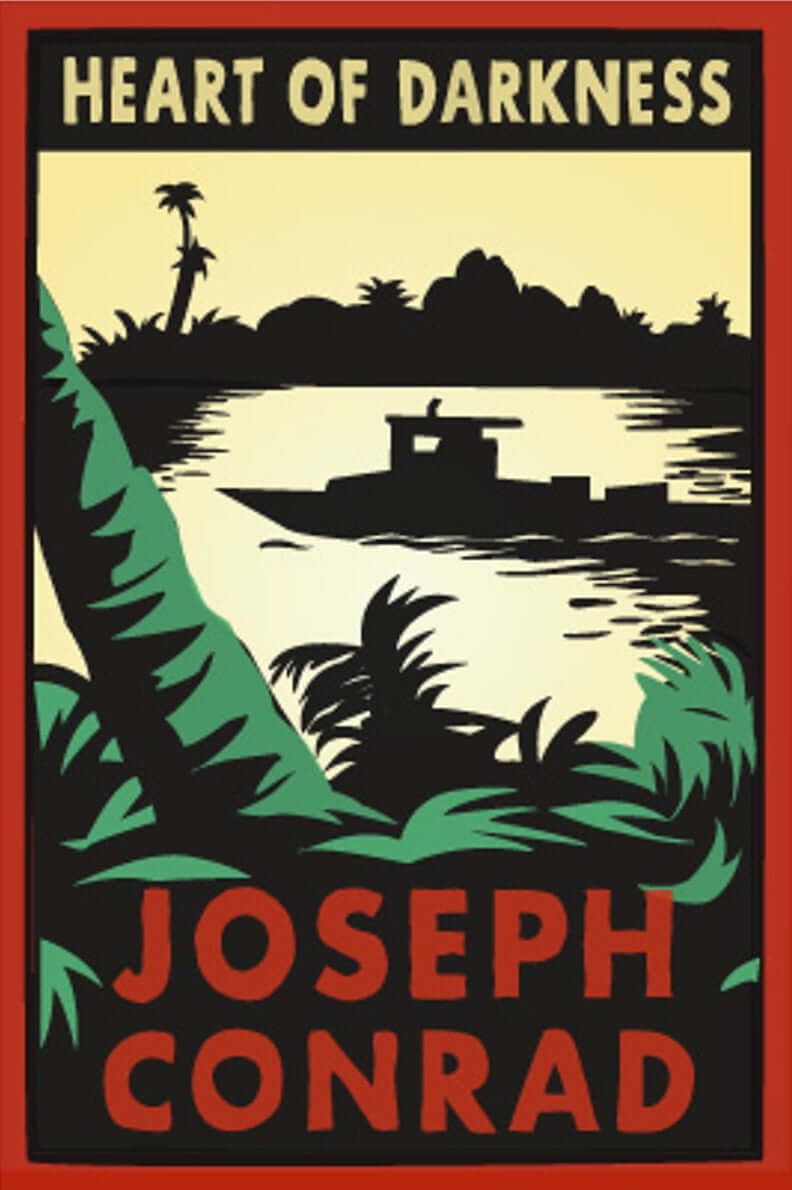
21. Heart of Darkness, Joseph Conrad
This is a bottomless book. I read again and again and again and every time I get something new out of it.
Kurtz looms large in my imagination, up there with The Judge and Cathy Ames, as a character who haunts me.
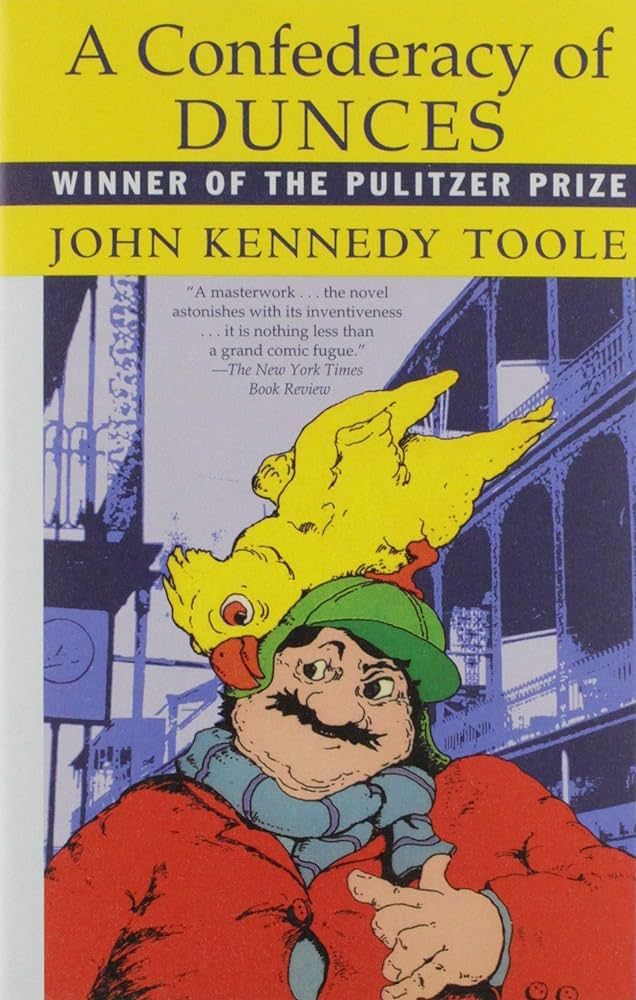
22. A Confederacy of Dunces
Ignatius J. Reilly is part philosopher, part hot dog vendor, and all kinds of crazy, decked out in a hunting cap and a medieval worldview. This dude’s a walking, talking embodiment of chaos and hilarity.
“Dunces” is one of my top three funniest books of all top (“The Sellout” and “Catch-22” are also in the mix).
I love Ignatius so much I even did a literary pilgrimage and visited his statue in New Orleans. Hats off to you, you crazy oddball.
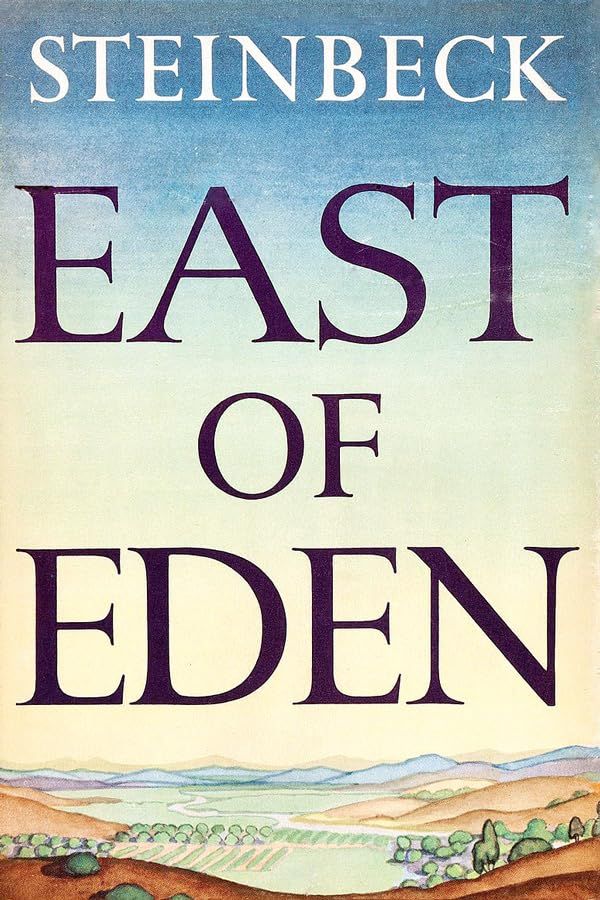
23. East of Eden, John Steinbeck
Steinbeck fans are evenly divided on whether this or “Grapes of Wrath” is better, but for my money, “East of Eden” is the easy winner.
I appreciate that it’s a California novel, where I live, and a novel with an ambitious scope of time and characters.
If “timshel” doesn’t mean anything to you, you might want to read this book. After my neighbor read it, he got a “timshel” tattoo.
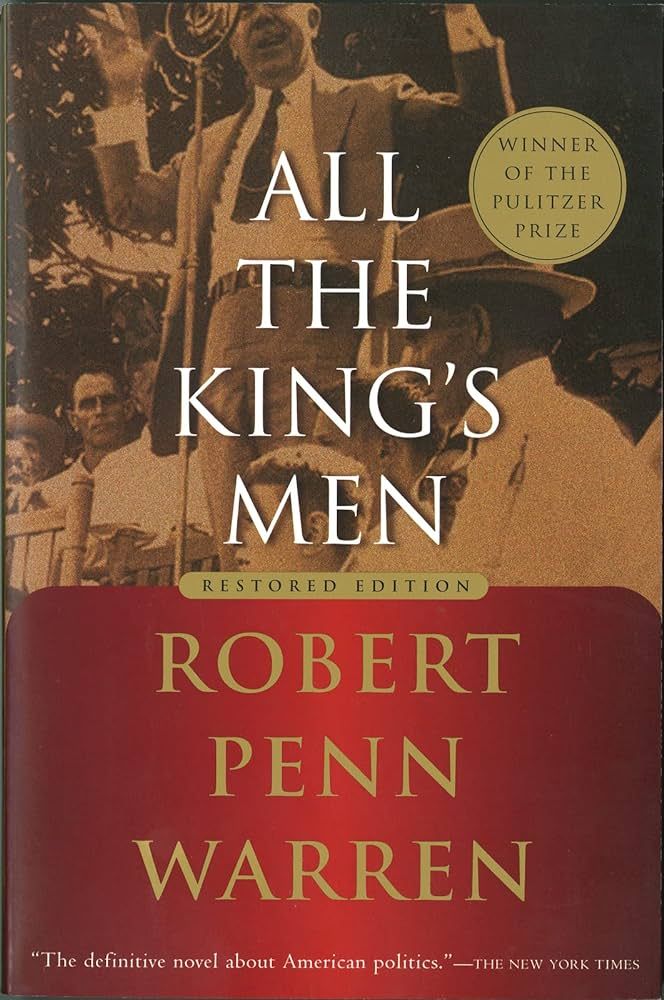
24. All the King’s Men, Robert Penn Warren
I prefer my literary fiction to have all the twists and surprises and pacing of a commercial novel, so I get the best words of both characters/language and also the entertainment of plot.
“All the King’s Men” delivers it all. It is a quintessential American novel, with football and politics and a wrestling with history.
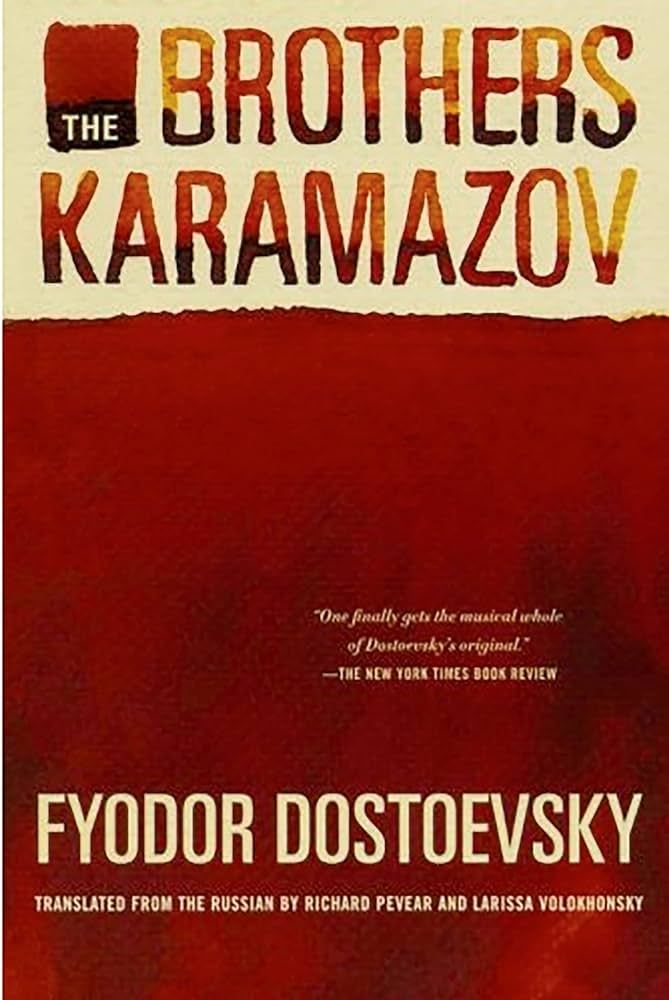
25. Brothers Karamazov, Fyodor Dostoevsky
Bakhtin said that Dostoevsky was a great writer because he refused to be dogmatic.
Dostoevsky gathered all these characters together and let each one speak.
The result is a polyperspectival novel with so many voices, and I love stepped into that conversation about morality and God.
2011 List: 50 Literary Pillars
Here is my list of 50 Literary Pillars, which I wrote in 2011 for the blog “Big Other”, and which includes nonfiction and even a couple of podcasts/films. Some of these are head scratchers, and might have been picked because I’d read them recently. Some others reflect a more experimental vein of reading (I was younger, I still liked that high art).
1. Blood Meridian by Cormac McCarthy. I once suggested this as a fixture on high school reading lists and a principal told me parents would riot. I still think it belongs in every possible canon.
2. The Border Trilogy by Cormac McCarthy. More ways to describe lightening than you thought possible.
3. Crime and Punishment by Fyodor Dostoevsky.
4. Brothers Karamazov by Fyodor Dostoevsky. The great novel of ideas.
5. House of Leaves by Mark Danielewski. Of course the inventive typography is wonderful, but the pathos within the erudition makes this book sing.
6. Blindness by Jose Saramago. Taught me the power of a “what if” premise.
7. Snow by Orhan Pamuk.
8. The Collected Stories of Deborah Eisenberg by Deborah Eisenberg. Compression, compression, compression. She is the best at it.
9. The Collected Stories of Flannery O’Connor by Flannery O’Connor. She knows the human heart, all that is wicked and all that is good.
10. After the Quake by Haruki Murakami. Contains two of best short stories ever written. The rest are pretty good too.
11. Wind Up Bird Chronicle by Haruki Murakami. Cats, classical music and wells.
12. Infinite Jest by David Foster Wallace. I don’t mean to get all Heraclitan on you, but I don’t know how you can be the same person after reading this book.
13. Consider the Lobster by David Foster Wallace. This entry is a placeholder for all of Wallace’s nonfiction. Read it all.
14. The Children’s Hospital by Chris Adrian. If any contemporary writers have imaginations better than Adrian, I haven’t read them.
15. The Elementary Particles by Michel Houellebecq. A primer on the wrong ways to think about sex.
16. 2666 by Roberto Bolano. I wish all novels were this ambitious.
17. Collected Fictions by Jorge Luis Borges. This is an infinite library.
18. Catch-22 by Joseph Heller. The funniest book I’ve ever read.
19. Jayber Crow by Wendell Berry. Teaches you what the world should be and what it shouldn’t.
20. The Art of the Commonplace by Wendell Berry. The book I quote more than any other.
21. The Power and the Glory by Graham Greene. Gives religion legs and heart.
22. Cloud Atlas by David Mitchell. The sheer force of language makes me feel inadequate as a writer.
23. Children of Men by P.D. James
24. Chronicle of a Death Foretold by Gabriel Garcia Marquez.
25. Moby Dick by Melville. The archetypal “large, loose baggy monster.”
26. Never Let Me Go by Kazuo Ishiguro
27. Miracle Boy by Pinckney Benedict. He writes the stories I want to write.
28. Mr. Blue by Myles Connely
29. Turn of the Screw by Henry James.
30. 1000 Leagues Under the Sea by Jules Verne
31. Metropole by Ferenc Karinthy. I’m a sucker for languages. Especially imaginary ones.
32. If on a winter’s night a traveler by Italo Calvino.Ah, the structural possibilities of narrative.
33. Pilgrim at Tinker Creek by Annie Dillard. The book that made me become a writer.
34. Jesus’ Son by Denis Johnson. Surreal and wonderful.
35. Heart of Darkness by Joseph Conrad. The power of this novella is that its meaning always lies just beyond my grasp.
36. The Unbearable Lightness of Being by Milan Kundera. In my experience of reading, the first marriage of philosophy and literature.
37. Zen and the Art of Motorcycle Maintenance by Robert Pirsig. The second marriage.
38. Disgrace by J.M. Coetzee.
39. Jealousy by Alain Robbe-Grillet. He upended all my novelistic rules.
40. The Winners by Julio Cortazar. I usually dislike the amount of dialogue in his work, but the premise of this mystery cruise carried me through.
41. Gilead Marilynne Robinson
42. The Old Testament. “Where we find men, things, and words in a style so grandiose that the Latin and Greek literatures have nothing to lay upon it.” – Friedrich Nietzsche
43. Beyond Good and Evil by Friedrich Nietzsche. Nietzsche taught me how to think.
44. Fear and Trembling by Soren Kierkegaard. Since I’m going to be a father of twins in the next few weeks, the father/son relationship haunts me.
45. The Structure of Scientific Revolutions by Thomas Kuhn. How to think about the progress of science.
46. Sexual Personae by Camille Paglia. Defined my notions of gender and sex.
47. Orphan Master’s Son by Adam Johnson.
48. The Decalogue by Krzysztof Kieslowski
49. Mars Hill Audio
50. Lonely Planet Guides. Because travel has fed my imagination.

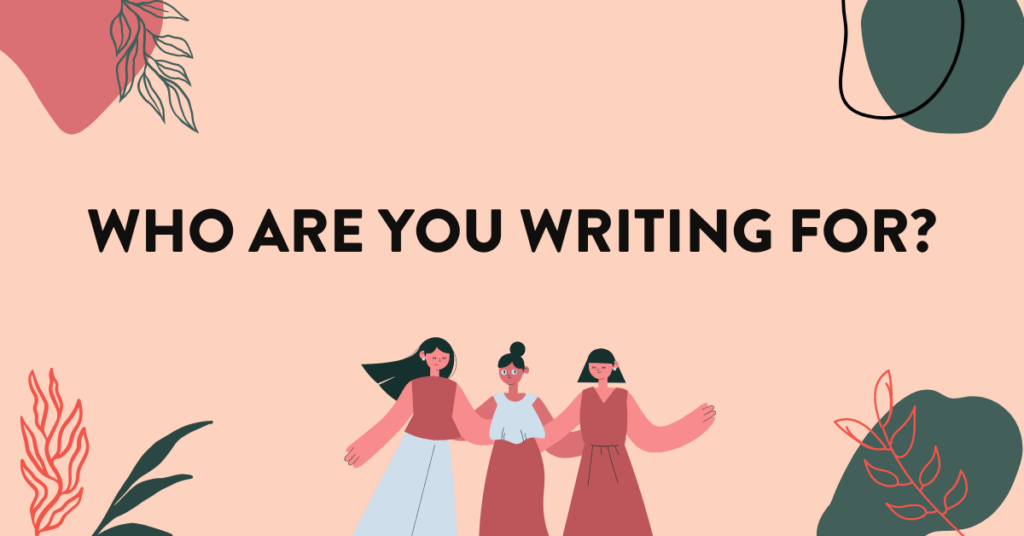

2 comments
I love your list but feel overwhelmed, as I’m 77 and still hooked on trade fiction.
Even so, I have read what I regard as good stuff, and wonder what you think of these authors: Thomas Pynchon; Emily Saint John-Mande; Michael Connelly, Ben Lerner, and back to good old trade fiction, C J Box
I liked Pynchon, but haven’t read him in some time. Emily St. John-Mandel is wonderful, and Ben Lerner is good too.